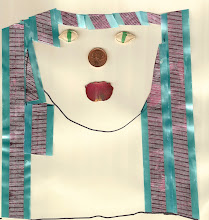
The moon comes to the forge
in its polished mother-of-pearl
the child stares at it, stares
the child is staring at it still.
Into the rippling air
the moon lifts up her arms
and bares moistened and pure
her breasts that are hard tin.
--Run moon, moon, moon.
For it is the coming of Gypsies
out of your heart they'll beat smooth
collars and amulets of white.
--Child stop your dancing
for when the Gypsies have come
they will find you on the anvil
with your little eyes sealed tight
--Run moon, moon, moon.
I hear their horses approaching.
--Child, stop, do not crush
my tunic ironed out and white.
The rider and his stallion are drumming
on the stretched hides of the plains.
At the forge it is the child
Holding his eyes well-shut.
Moving from the fields of olives
brown and dreamy the Gypsies. . .
their temples held up lofty
their pupils downward turned.
How loud sounds the screech-owl?
Ai, sound as would pierce a trunk!
Across the sky moon loosens
like a child from your hand.
Within the weeping forge
The shouts rise up from the Gypsies.
The air is watching over, watches
The air become their watchman.
Federico Garcia Lorca, Romanc
e de la Luna, Luna
Madrid 1924
about the translator
Marshall Hryciuk is a poet living in Toronto, Canada. In the last year, he has electronically published no fewer than 257 translations of modern and classical poetry, from Pindar to Paul Celan, including Sappho and Catullus, Rilke, Rimbaud, Mallarme, Quasimodo, Basho and many others. He says that although he feels that many of the poets like Baudelaire, Rilke and Rimbaud “hardly need to be translated again,” he does so because he likes to “keep the rhyme schemes and where possible, the metres.”
He finds the translation of Federico Garcia Lorca gratifying, “…because he brought the symbolist poetic practice into the Spanish language (to the dismay of many) so i feel a driving momentum to be both as literal and metaphorically ambiguous at the same time as possible.”
Asked about his method of translation, he replies: “ I have no method but dictionaries, and with Garcia Lorca as with Mallarme, Sappho and Parmenides, my approach is reverence.”
….”i translate not to 'make it new,’” he says, “but to make it ‘originary’—the genuine response to a genuinely great poem should be more poetry. The symbolist poet finds the contact with language about a compelling experience just as exciting as the original experience…”





No comments:
Post a Comment